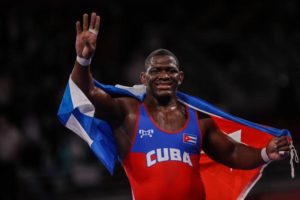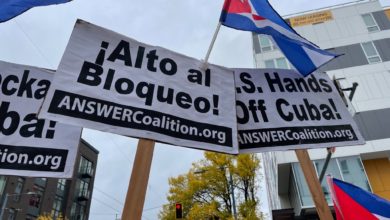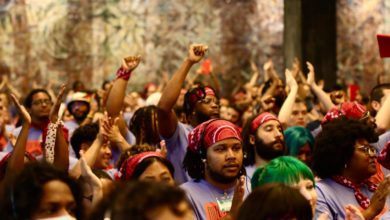To the surprise of many, the Republic of Cuba finished the Tokyo Summer Olympic Games with 15 medals. Their seven gold, three silver and five bronze medals place them 14th in the world. This is remarkable given the impact of the U.S.-imposed blockade and the size of Cuba’s population.
Of the countries that won more medals than Cuba, only New Zealand has a smaller population. Cuba ranked second in Latin America behind Brazil, which has a population of 211 million compared to Cuba’s 11.33 million.
Cuban athletes won a medal for about every 755,333 people in Cuba. The United States, with 113 medals total, received one medal for about every 2,904,425 people in the United States.
Cuban athletic development a result of the revolution
The achievements of Cuba at the Olympics are a testament to the success of Cuban socialism. The state has funded athletics since the 1959 revolution. In Cuba, people are supported by their community and the state if they show interest and promise in a particular field, including sports.
In capitalist countries like the United States, people must rely on their own personal resources and connections to access athletic facilities and obtain equipment. This presents many barriers for working class, poor and oppressed athletes.
The socialist orientation of Cuba’s athletics is understood and appreciated by Cuban Olympians, such as four-time Greco-Roman wrestling gold medalist Mijaín López, who dedicated his most recent victory to Fidel Castro: “I have to thank this result and dedicate it to our undefeated Commander-in-Chief, who was the one who brought sport to Cuba for the first time. And I believe today we are not only deserving of this result, thanks to him and thanks to the efforts he made so that our revolution could go forward.” (Translated from Spanish by Kawsachun News)
Cuba’s boxing team captain Julio César La Cruz also expressed a revolutionary sentiment after defeating Cuban expatriate Emmanuel Reyes. As Radio Havana Cuba points out: “Reyes, born in Cuba but abandoning his country for Spain, had been spouting anti-Cuban rhetoric for weeks leading up to the Olympics. Observers say he was on the social networks, and chanting the counter-revolutionary slogans typical of recent maneuvers against the Cuban Revolution.”
After La Cruz’s 4-1 victory was announced, Reyes was nowhere to be seen as La Cruz bowed before the audience and shouted, “Patria y Vida, no! Patria o Muerte! Venceremos!” The slogan “Patria y Vida” (“Homeland and Life”) has been adopted by Cuban counterrevolutionaries and other reactionaries to undermine the popular Cuban revolutionary slogan “Patria o Muerte,” (“Homeland or Death”).
La Cruz went on to win the gold medal in men’s heavyweight boxing. Cuba dominated the boxing category, finishing with four gold and one bronze medal.
U.S. blockade hurts Cuban athletics
The incredible performances by Cuban athletes at the Tokyo Olympics are even more impressive when one takes into account the 62-year U.S. blockade. A huge strain on the economy and society in general, the blockade hinders Cuba’s athletic development.
The blockade restricts access to imported sporting equipment and prevents Cuba from being able to produce their own high-quality sporting goods as it cannot get materials needed to do so. It also limits the flow of medicine and medical technologies into Cuba.
Without adequate training equipment, athletes are more prone to injury. A lack of medical devices and medicines such as anti-inflammatories and painkillers extends recovery times, especially for major injuries and procedures.
Additionally, multinational corporations that have their roots in the United States are heavily involved in almost every major sporting industry. This incentivizes players to defect from Cuba so the U.S.-imposed blockade can no longer inhibit their ability to compete in professional sports leagues abroad.
One need not look further than the sport of baseball to see how the blockade serves as an athlete drain for Cuba. Cuban baseball players must renounce their citizenship to play in the U.S. major league baseball, a policy that was briefly reversed before Trump’s administration reimplemented it.
The Tokyo Olympics provided Cuban athletes with a platform to express perseverance in the face of a criminal blockade while engaging in friendly competition with athletes from nations across the globe. Despite its capitalist roots, the Olympics are a forum where socialist countries like Cuba and China, and others the U.S. opposes, like the Unified Korean team in the 2018 Olympics, can display their social and cultural achievements.
Perhaps most importantly, these teams and their approach illustrate the possibility of a future where the norm in international sports competition changes from corporate sports events to events that really build peace and friendship among all peoples.






